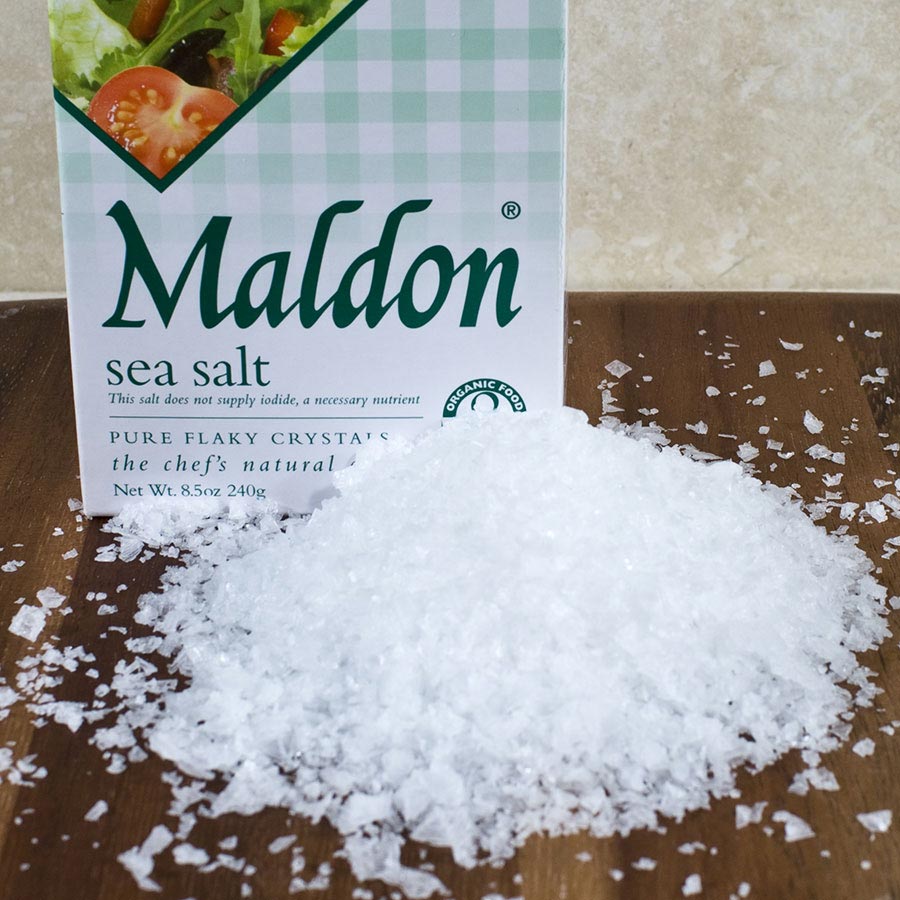"Once you eliminate the impossible, whatever remains, no matter how improbable, must be the truth."While a tidy little saying by the author Sir Arthur Conan Doyle, it is too pat to be valid. The problem is there's always missing information. The secret behind Maldon sea salt is simple. Its shape controls the rate at which it dissolves in your mouth. When judiciously sprinkled atop food, you get the food's flavor burst first, then a delayed reaction of salinity - like a slow-acting medicinal capsule (to make a poor analogy). Just because something seems to be an easy alternative doesn't mean it's going to be the same. Beware of imitations.
Easy alternatives
by Paul McGowan
An easy alternative to Maldon sea salt is kosher sea salt. Both are made from pure salt evaporated from the ocean. Both raise salinity levels in the exact same proportions. Yet, Malden is prized by knowledgeable cooks around the world.
If you go to Maldon's homepage and watch their video some will likely think "snake oil", a great marketing ploy to sell expensive salt. After all, it's just salt! Yet, from an empirical perspective Maldon, properly applied, delivers a remarkable experience unmatched by any other sodium chlorides.
Those objectivists who believe they have the world figured out will just roll their eyes and believe yet another fool has spent his money on a good story. Those subjectivists that swear they taste a difference might be convinced there's more to Maldon than its chemical composition.
Of course, just like the tiresome arguments in audio, both camps are correct and incorrect. Maldon is made just from salt. There are no special additives.
And here's where we fall by the wayside. We rely on the crutch of an old saying:
- Choosing a selection results in a full page refresh.
- Opens in a new window.









